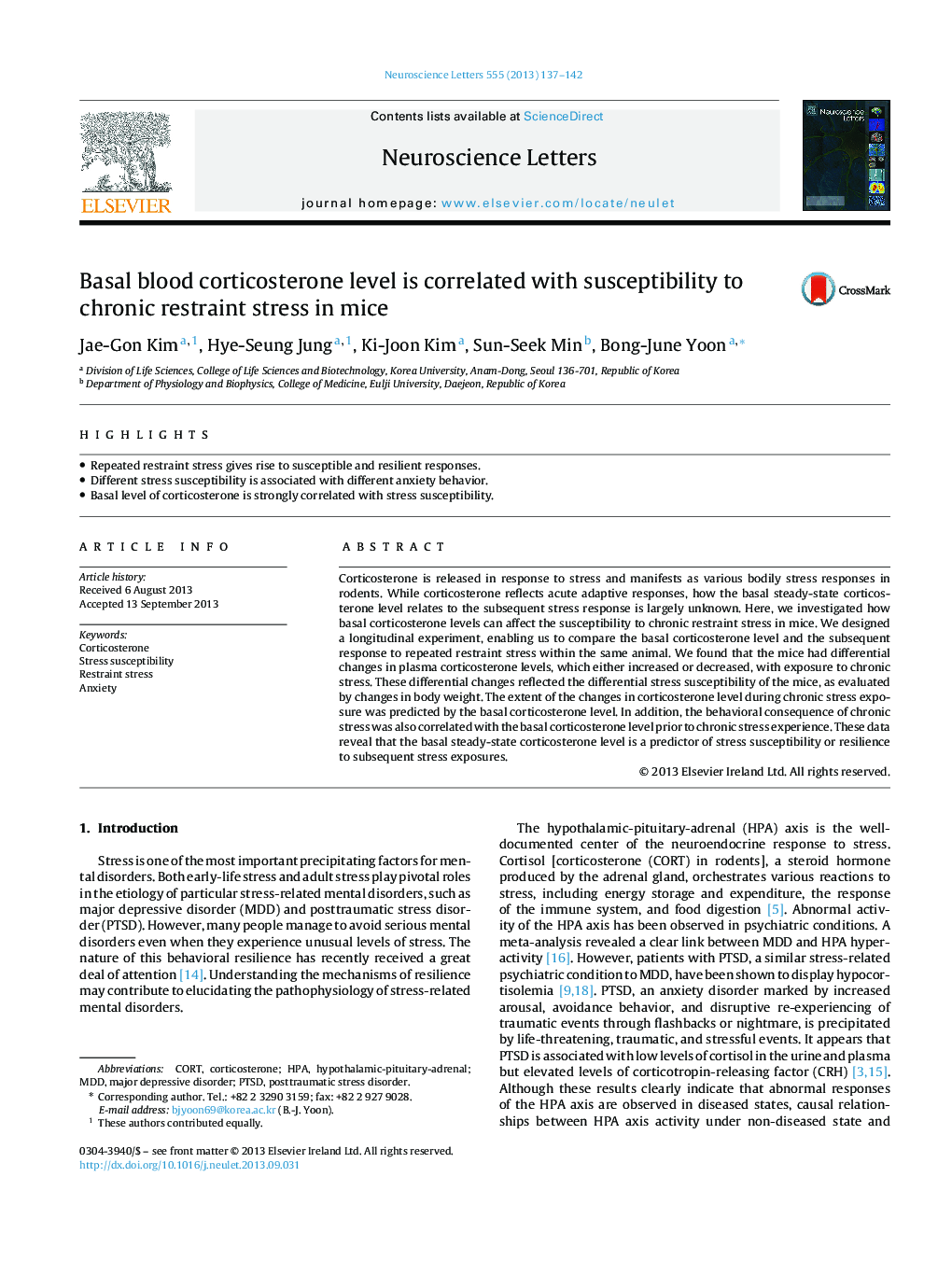| Article ID | Journal | Published Year | Pages | File Type |
|---|---|---|---|---|
| 4343921 | Neuroscience Letters | 2013 | 6 Pages |
•Repeated restraint stress gives rise to susceptible and resilient responses.•Different stress susceptibility is associated with different anxiety behavior.•Basal level of corticosterone is strongly correlated with stress susceptibility.
Corticosterone is released in response to stress and manifests as various bodily stress responses in rodents. While corticosterone reflects acute adaptive responses, how the basal steady-state corticosterone level relates to the subsequent stress response is largely unknown. Here, we investigated how basal corticosterone levels can affect the susceptibility to chronic restraint stress in mice. We designed a longitudinal experiment, enabling us to compare the basal corticosterone level and the subsequent response to repeated restraint stress within the same animal. We found that the mice had differential changes in plasma corticosterone levels, which either increased or decreased, with exposure to chronic stress. These differential changes reflected the differential stress susceptibility of the mice, as evaluated by changes in body weight. The extent of the changes in corticosterone level during chronic stress exposure was predicted by the basal corticosterone level. In addition, the behavioral consequence of chronic stress was also correlated with the basal corticosterone level prior to chronic stress experience. These data reveal that the basal steady-state corticosterone level is a predictor of stress susceptibility or resilience to subsequent stress exposures.
